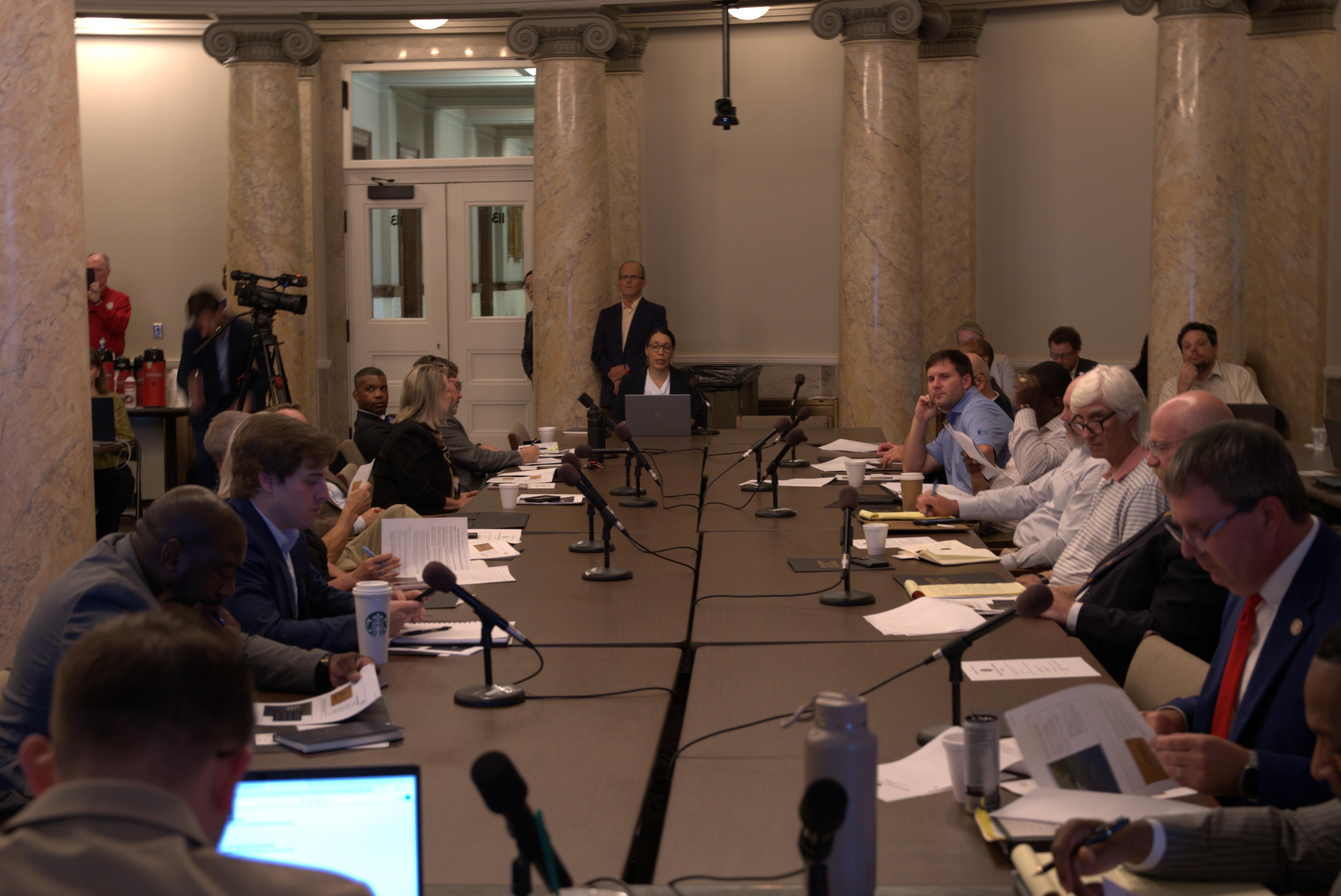The panel, created by House Speaker Jason White, is exploring options that could include expanding Mississippi’s limited education scholarship account (ESA) program for students with disabilities. Proponents want to widen eligibility, while opponents warn expansion could destabilize low-wealth districts.
Kim Wiley, an education policy analyst with the Mississippi Center for Justice, told lawmakers that making more student groups eligible for ESAs could be “disastrous” for public schools across the state.
“I think rural districts, they're going to feel the effects more than anybody,” Wiley said. “It's taking away funding from some school districts that really can't afford to have any reduction.”
Wiley also urged lawmakers to consider “hold harmless” transition measures if they move forward so districts are protected from sudden enrollment and revenue reductions Beyond funding mechanics, Wiley said quality and oversight vary widely outside the public system, so quality control issues also need to be addressed.
“Some private schools are low quality, some are elite,” Wiley said. … “Teachers don't have to be certified. Their curriculum can be whatever.”
Erika Donalds, a national school-choice advocate, framed the current public school system as a monopoly that limits options for families who can’t afford to move or pay private tuition out of pocket, reserving practical “choice” for wealthier parents.
“Every parent should have the ability to take the dollars that are allocated to their child and take it to the school that they think is going to best fulfill their child’s educational needs.,” Donalds said.
Donalds also argued that giving families direct control over a share of public education funds would create competitive pressure on schools.
“I personally think that schools that parents don't want should close,” Donalds said. “That is a free market principle that I think will work well in education.”
Committee chair Rep. Rob Roberson said the point of the hearings is to air both sides before members draft legislation
“No one’s here to harm public education,” Roberson said. “We’re here to try to help our kids and help our parents be able to make the best choices for their kids.
The committee plans additional hearings this fall and is expected to craft recommendations in advance of the 2026 legislative session. Key questions still in play include whether expanded ESA eligibility would be universal or targeted by income, disability, or school performance, and what accountability standards would apply to non-public schools receiving state funds.




